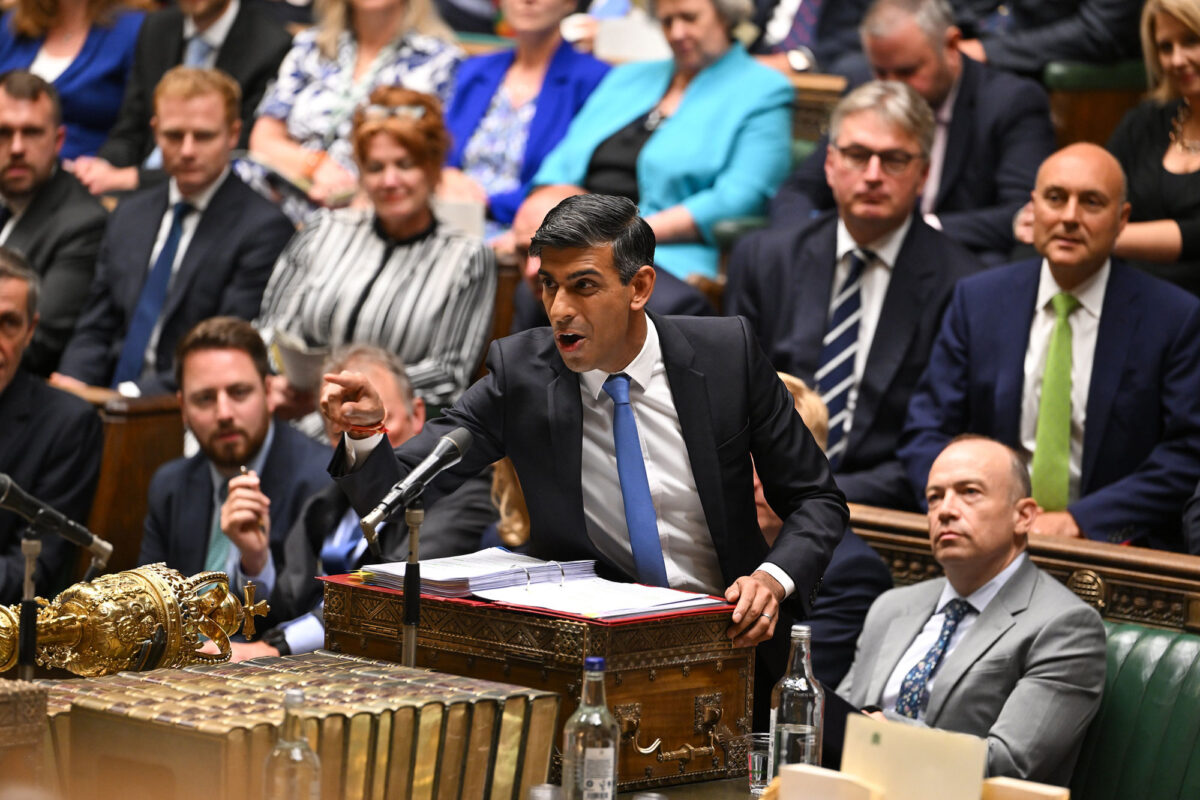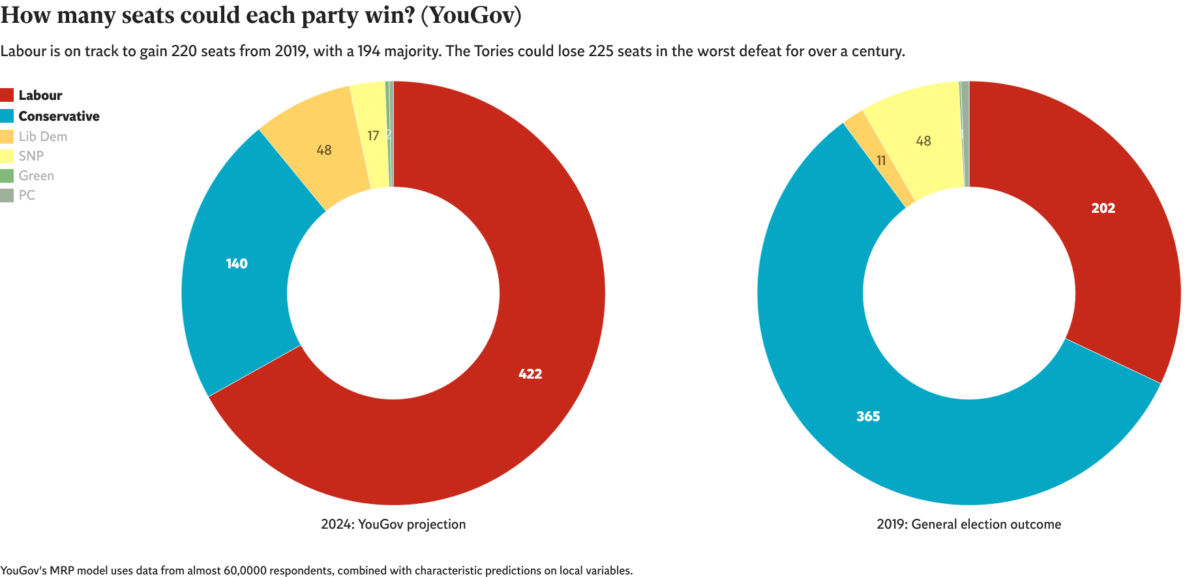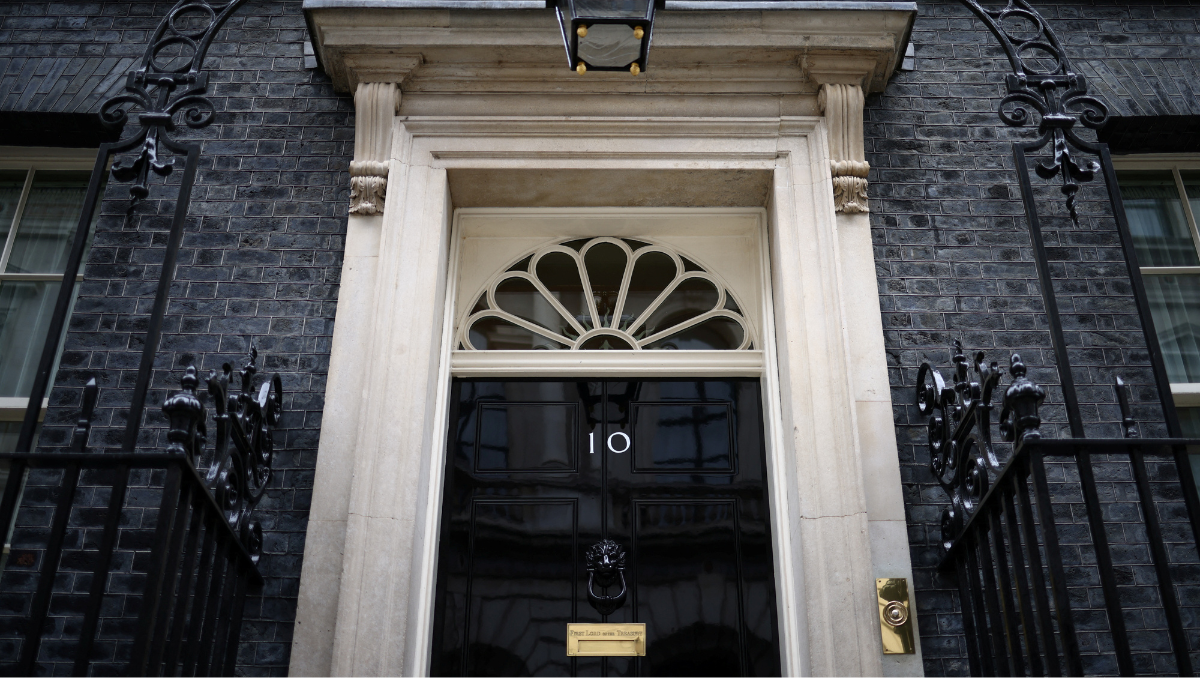The United Kingdom’s political landscape is poised for a seismic shift, as the latest prediction polls indicate an unprecedented triumph for the Labour Party in the forthcoming general election. According to the authoritative YouGov MRP (Multilevel Regression and Post-stratification) model, Sir Keir Starmer’s Labour is projected to secure a staggering 422 seats, consigning Rishi Sunak’s Conservative Party to a mere 140 seats – their worst performance in over a century.

Table of Contents
Conservatives Face Total Wipeouts
If the Labour Party was to secure 422 seats in Parliament as predicted, it would set be unprecedented. The projected landslide would surpass even Tony Blair’s landmark 1997 triumph, granting Labour a commanding majority of 194 seats – the second largest in British political history.
The Tories meanwhile could lose all but a handful of seats in London, the North East, the North West, and Wales. Several prominent figures within the Conservative Party, including cabinet ministers and long-standing MPs, are also at risk of losing their constituencies, further compounding the party’s woes. The widespread losses across multiple regions highlight the depth of the challenges facing the Conservatives as they grapple with the possibility of their worst electoral performance in over a century.
Regional Dominance for Labour
Labour, under the leadership of Keir Starmer, is predicted to become the largest party in the South of England for the first time, winning 153 seats in the region when combined with its projected 65 seats in London. This marks a significant departure from the 1997 landslide, where the Conservatives still held a stronghold in the South with 120 seats outside London.

YouGov suggests that Labour will secure 34 seats in Scotland, cementing its position as the largest party north of the border. Notably, the Liberal Democrats are expected to regain their status as the third-largest party in Parliament, winning 48 seats and surpassing the declining Scottish National Party.
The projection predicts the potential for a reshaped political spectrum in Britain, with Labour’s dominance extending across regions and the re-emergence of the Liberal Democrats as a formidable force.

Emerging Forces
While the projection portrays a resounding Labour victory, the churning electoral landscape harbours intense battles in over 130 constituencies, where no candidate is poised to secure more than a razor-thin 5% lead. Amidst this battleground, the Green Party is slated to clinch Bristol Central, marking a maiden foothold in the House of Commons.
In a move that could pose difficulties for Prime Minister Rishi Sunak, prominent Brexit campaigner Nigel Farage announced on Monday that he will stand as a parliamentary candidate for the anti-immigration Reform UK party. Farage, a long-time critic of immigration policies, has been a vocal opponent of the Conservative government’s approach to the issue.
The YouGov MRP poll prediction of zero seats for Reform UK is likely to change, with Farage adding to the 300 candidates standing in the election. Farage’s candidacy is likely to attract voters disillusioned with the current administration’s stance on matters related to immigration and Brexit.
July 4, Election Day
The implications of these projections could reverberate through British politics for years to come, but a defiant Grant Shapps dismissed them entirely: “I think that there is only a single poll that matters and it’s on election day… We’re going out to win this election.”
The UK votes on July 4. Till then, keep calm and carry on.



